Special report: It’s too tough to call in Cork's 'constituency of death'
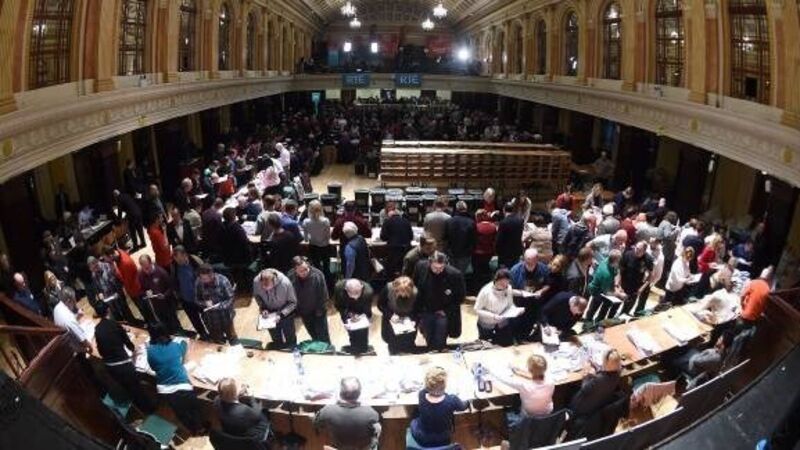
The extraordinary quality of political talent in Cork South Central sees it as one of the most hotly contested constituencies in the country, writes political correspondent .
A Tánaiste, opposition party leader, finance spokesman and a justice spokesman — Cork South Central has it all.
The viciously fought four-seat constituency has more plots, subplots and rivalry than a Shakespearean play and has seen many high-profile and strong Dáil performers fall in the past.
In almost any other constituency, being second in command of the Government would automatically re-elect you and comfortably bring in a running mate, but Simon Coveney will have a tough fight in the next election to keep his seat.
“It’s arguably the most competitive constituency in the country, there are a couple of other contenders but it’s definitely in the top three,” Coveney admits.
Cork South Central takes in settled city areas like Ballintemple and Togher, includes the urban sprawl of Carrigaline and Douglas but also has rural tracts such as Monkstown and Fountainstown.
And so, elected politicians and wannabe TDs are confronted with almost every issue that could possibly crop up.
“I think it’s a very representative constituency of the entire country,” says Fianna Fáil’s Michael McGrath, who topped the poll in 2016.
“You have the city centre, but you also have rapidly expanding suburbs like Douglas, Passage West, and Carrigaline,” says McGrath, who cites public transport and the need for investment in infrastructure in the constituency’s rapidly growing towns as key concerns.
“You would have some rural hinterland as well so we even have broadband issues in the constituency, which might surprise people.”
His running-mate and Fianna Fáil leader Micheál Martin cites housing and health as the two big issues in the region.
In a constituency like Cork South Central holding the position of Tánaiste is not simply enough to get you elected.
“Coveney is under a bit of pressure, just because he is not around,” said one local political representative.
“He took on Brexit, he took on Northern Ireland — he might be on the telly but he is not in the constituency.”
The father of three daughters is now acutely aware that his elevation to Tánaiste and Minister for Foreign Affairs has taken him away from his voters and in recent months has redeployed staff to make up for any perceived deficit. This includes his Dublin-based adviser Caitriona Fitzpatrick who has been spending two days every fortnight in the Carrigaline office.
The Tánaiste also says he “works a lot of weekends” attending events and meeting people to counteract his busy national and international schedule.
“Being Tánaiste, Minister for Foreign Affairs and deputy leader of the party means I have a lot of responsibilities outside of Cork. But I think Cork people see that I hope, they do have a big interest in Brexit, the outcome of Brexit is very important to people in my constituency as it is for people all over the country, and I think people have an interest in Northern Ireland too.
“But they also expect to see me locally which is a real Irish thing,” says Coveney.
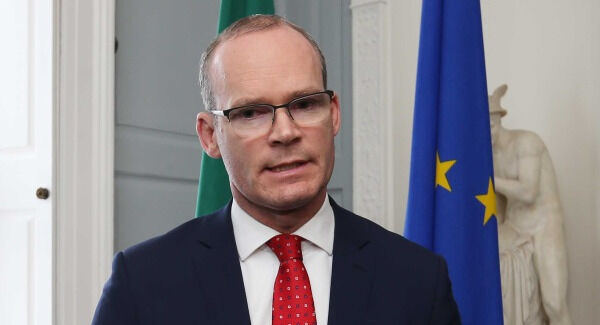
The Fine Gael TD will also be under immense pressure to get Senator Jerry Buttimer — who was ousted from Leinster House in 2016 — across the line next time around.
While Mr Coveney says he is a “realist” he is also “ambitious” when it comes to boosting the Fine Gael ranks.
“Whether I was a backbencher, a minister or Tánaiste I would always have wanted to bring in a second seat for Cork South Central.
“The two Fianna Fáil TDs are very strong and Donnchadh Ó Laoghaire is very strong so we have our work cut out.”
While Coveney is seen to be away from his base due to Government commitments, local representatives note that Buttimer has been “out like the clappers” on the ground.
He will be fighting to rob some of Coveney’s votes to shore up the 1,400 first preferences he lost before the 2016 election when Bishopstown was moved into Cork North Central.
“He is actually going into areas that would not naturally be Fine Gael heartlands. He is out all the time, he is often seen in the city centre as well as going door to door,” said one local councillor.
While Buttimer backed Cork’s merchant prince’s failed leadership bid, many in Fine Gael saw him as a Leo Varadkar supporter who had been forced to campaign for his constituency colleague.
Some believe the Tánaiste also doesn’t help himself when it comes to building allies in the constituency.
“The problem with Simon is that he holds back a lot of announcements for himself and tries to keep things for himself and that doesn’t breed a lot of loyalty in his party,” one local representative told the Irish Examiner.
Similarly there is no love lost in Fianna Fáil, who have dominated the constituency with both Mr McGrath and Mr Martin claiming over 11,000 first preference votes each to poll first and second in the last general election.
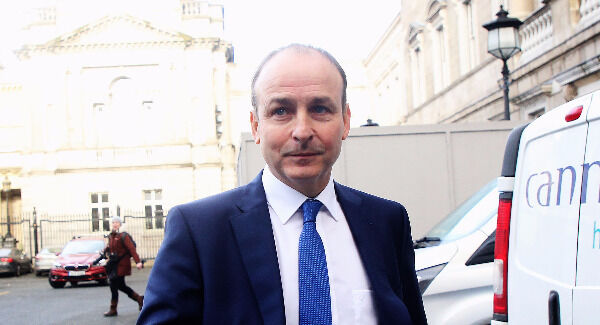
Both men will claim that strategic vote management has led to their perceived untouchability but in reality their heartlands are at separate ends of the constituency giving them their own defined territory.
Indeed, members of other parties will claim Mr Martin’s leaflets were dropped in Carrigaline last time around and Mr McGrath’s election flyers were posted through letterboxes in Turner’s Cross.
While McGrath is seen as a threat to Martin, Martin could be seen as the only thing stopping the Fianna Fáil finance spokesman from becoming party leader and perhaps Taoiseach.
In 2016, Cork South Central went from a five-seat constituency to a four seater, which added an extra dimension to what had already been dubbed the constituency of death.
The real surprise came when young Sinn Féin candidate Donnchadh Ó Laoghaire overtook sitting TDs Mr Buttimer and Labour’s Ciarán Lynch.
“I think it was a big achievement for us, it was a big breakthrough to get that seat in 2016, we have been building since then. We are active on the ground, we have two offices, one in Togher and one in Carrigaline, they are both very busy,” says Mr Ó Laoghaire.
“It’s a very competitive constituency, always has been and will be for the foreseeable future, but we believe that we can hold onto that seat and hope we can build our vote.”
Timing will be everything, Mr Lynch believes, and says that if the local elections, due to take place in May of next year, come before a general election they may throw up some unexpected candidates.
“The terms of reference for the next general election have yet to be set. No seat belongs to one person.”
This was echoed by Mr McGrath who said: “You never know what candidates might emerge. Fine Gael will be pushing strongly for a second seat, Jerry Buttimer is a full-time politician, and Donnchadh Ó Laoghaire I think has done very well.
“And there will be any number of independents. Labour will certainly be targeting this constituency as well, the Greens will always have a candidate here.
“It’s all to play for and we will all have to paddle our own canoe trying to get across the line.”
Just calling to say hello, but Buttimer gets grief on doorstep
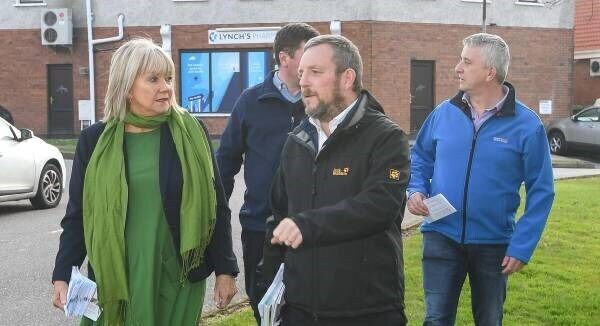
It’s a sunny Friday evening, lawnmowers hum, children are playing on their bikes, couples are out walking dogs and Jerry Buttimer is getting grief on the doorsteps, writes
But the senator loves it.
After losing his Dáil seat in the 2016 Cork South Central dog-fight, Buttimer got straight back out into the constituency, pounding the streets and knocking on doors.
“Is there an election coming up or what?” is a common refrain as the Fine Gael senator canvasses in a well-kept housing estate in Douglas.
“No, just calling to say hello,” comes the standard response. Buttimer explains that he goes out around twice a week and tonight is this area’s turn.
He gets lambasted on the first door by a Bus Éireann driver who vows never to vote for Jerry or Fine Gael again. But it seems like water off a duck’s back to the former teacher, who also studied for the priesthood and who is now determined to claw back his Dáil seat whenever the next general election comes around.
Undoubtedly, the redrawing of the constituency boundary didn’t go in Buttimer’s favour in 2016.
He was critical of the 2012 boundary commission report, which resulted in Bishopstown and Glasheen moving from the Cork South Central constituency to Cork North Central, and with it around 1,400 first preference votes for Buttimer.
It had been reported that he considered the option of following his votes across to Cork North Central, but in the end he remained in Cork South Central in the last election.
“I absolutely love it. You meet people and you get them in their most natural comfortable setting and you hear what they are saying, that’s the important point.
“There is no point in doing focus groups, this is the focus group,” he says pointing to a family who are now looking out from their door.
Two young children peer out, lollipops in mouths, and their mother immediately tries to justify the cavity-inducing treat: “This is the second time they have had a lollipop in their whole life”.
“When I was younger we had a chipper on a Friday,” says Buttimer.
“Tell me, are you happy in general with Government, or unhappy?” Jerry asks after discussing the proposed M28 road with the parents of the distracted toddlers. The issue is exercising the minds of many residents.
“Relatively happy, I can’t say we are overly political,” the father says.
“Is that a five out of 10 now, or a six out of 10?” asks Cllr Deirdre Forde who is part of the canvassing group tonight. “I would go a seven out of 10,” is the response.
“That’s good, thanks very much,” says Jerry, happy enough to hotfoot it to the next door with the endorsement ringing in his ear.
Some people “have the dinner on” or “don’t have time to talk”, but the sunshine means most are happy to chat, raising everything from the local Gaelscoil to the state pension, teachers’ pay, traffic, footpaths, corruption in the public service, HSE funding for dentists, and the upcoming referendum.
“You get everything when you are out canvassing; you get the local information and you know what’s going on. You get killed on some doors.”
It’s a quick trot up to the next house. “We brought the sunshine,” says Jerry.
“No you didn’t. Micheál Martin brought it about two hours ago,” says a middle-aged man, with a smile.
“It’s called confidence in supply,” retorts Jerry.
“I wasn’t expecting any election yet,” comes the response.
“No, but we go out a couple of times a week; we are here tonight, haven’t been here in a while.”
Again the M28 comes up and Buttimer admits his answer is like a “broken record” as he has spoken about it at so many doors.
Kate, a third-level student, asks straight up how he will be voting in the referendum. He’s in favour of a repeal.
“Irrespective of people’s viewpoint, everyone should be engaging in this debate.
“We live in the grey, we don’t live in the black and white.”
At another door, Buttimer talks club hurling with a transition-year student.
And on to the next door, where a woman asks what party Buttimer is with.
“Fine Gael — is that good or bad?”
“Oh that’s desperate.”
“John, John,” she calls her husband, and with a suspicious eye, points to Buttimer and says: “Fine Gael.”
“No election?” John asks.
“No election, just saying hello.”
Ó Laoghaire could lead SF, says McDonald
The Cork South Central TD has a bright future in Sinn Féin, claims his party leader, writes .
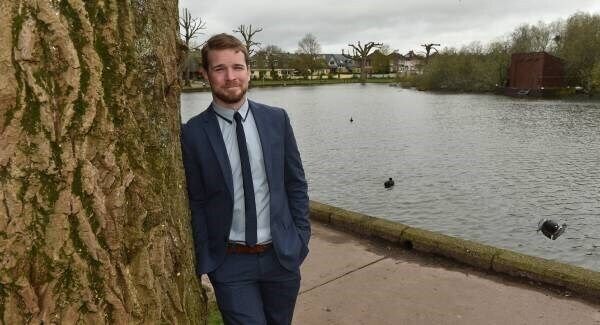
Just two years into his Dáil career Sinn Féin president Mary-Lou McDonald already sees Donnchadh Ó Laoghaire as a future leader of the party.
At 27, the Togher native was the second youngest TD to be elected in the 2016 general election — missing out on the baby of the Dáil title to Fianna Fáil’s Jack Chambers.
However, after winning a seat in the notoriously bloody battleground of Cork South Central, a constituency where Sinn Féin traditionally have not had a strong foothold, he has become a prominent member of the party as justice spokesman.
While no seat is ever a given, Ó Laoghaire has clearly been singled out in the party as someone who is there to stay.
“There is no such thing as a safe seat and certainly that’s the case in Cork South Central, it’s a constituency of what would be called big-hitters politically,” McDonald told the Irish Examiner.
“But I think Donnchadh has very much come into his own. He is a very, very talented and very considerable political person and he is only going to get better.
“I believe he will be re-elected, but I also know and he knows that you have to go out and you have to fight your ground and lay out your campaign, particularly when you are in a constituency like he is,” she said adding that “he might well be” the next leader of Sinn Féin.
In a constituency inhabited by the Tánaiste and the Fianna Fáil leader, Ó Laoghaire also makes no secret of his own ambition.
“My first priority is to hold the seat and obviously once I have that achieved I want to be part of a strong Sinn Féin team in government.”
Leadership of Sinn Féin is something that he would “begin to consider at a later date”.
“I do see myself as a collective leadership within Sinn Féin, a new leadership north and south and obviously I would like to be a minister as part of government, that’s not at any price obviously.
“We are not in the business of propping up bad politics, we would like to be in Government but not at any price.”
But Ó Laoghaire also recognises the massive achievement that gaining the seat in 2016 was both for him and the party. He now has two offices in Cork South-Central, one in his native stomping-ground of Togher and the other in Carrigaline, where the vote would traditionally go to Michael McGrath and Simon Coveney.
Ó Laoghaire studied law in UCC where he joined Sinn Féin. He went on to work as a parliamentary assistant to then Sinn Féin senators David Cullinane and Trevor Ó Clochartaigh and former Cork East Sinn Féin TD, Sandra McLellan, before being elected to Cork County Council in 2014.
He fought off former lord mayor Chris O’Leary, in a run-off after they tied at the party convention ahead of the general election.
He then defeated the odds again by claiming the fourth seat, coming in ahead of the sitting TDs Jerry Buttimer of Fine Gael and Labour’s Ciarán Lynch, both of whom are likely to want that seat back next time around.
“It’s a very competitive constituency, always has been and will be for the foreseeable future, but we believe that we can hold onto that seat and hope we can build our vote,” he said.
Uneasy alliance has worked electorally for FF in South Central
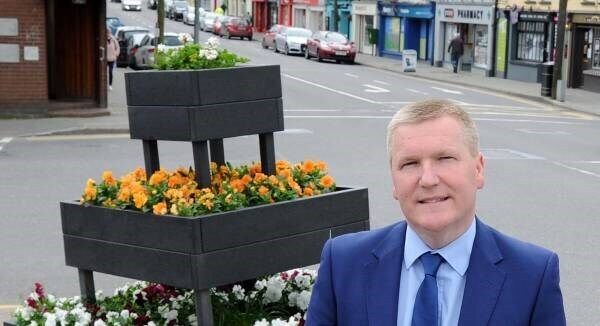
A kick in the teeth is the only way it could be described, writes .
After doubling the number of Fianna Fáil seats nationally in the last election, Micheál Martin was simultaneously robbed of the poll-topping title in his own constituency.
The blow was made all the more painful by the fact that Martin, who topped the poll in every election since 1997, had been denied yet another win by his party colleague Michael McGrath.
Both men, who are known for their controlled demeanour, would never publicly admit that it was a massive triumph for one and a small but crushing defeat for the other.
“I think both he and I were just delighted that the party took so many seats in the last election,” Mr McGrath told the Irish Examiner.
Mr Martin also brushes the result aside: “It doesn’t bother me at all and it didn’t bother me at all.
“I know from experience that once a count is over it’s not really an issue once you get a seat, we did very well last time.”
Often your biggest threat comes from within your own ranks and Micheál Martin must be feeling the pressure from his underling who undoubtedly would love to dethrone the leader.
If Mr Martin does not lead the party into Government after the next general election, his position will certainly be under threat with Mr McGrath often cited as an obvious successor.

But competitive tensions between both men go back further than the current Dáil and as a Fianna Fáil member in the boiling cauldron of Cork South Central you are either in the Martin camp or the McGrath camp.
As one local representative put it: “There is a saying that if you want a friend in politics you should get a dog, and I think that is especially true for Micheál and Michael.”
Mr McGrath has been a solid Dáil performer, acting as finance spokesman since 2011, raising the tracker mortgage scandal and soaring motor insurance costs in recent times.
A native of Passage West, he now lives in Carrigaline with his wife Sarah and seven children ranging in age from 16, right the way down to two.
Mr Martin, a proud Turner’s Cross man and son of champion boxer Paddy Martin, has calmly led his party from near collapse in the 2011 election to a resurrection in 2016. He and his wife Mary are parents to two sons and a daughter — tragically they lost two other children.
Both men are known for their honest approach to politics with an ability to grasp detail.
They undoubtedly are ambitious. Both would one day like to be Taoiseach.
But on Mr McGrath’s admission, the constituency colleagues are not close on a personal level.
“By the nature of our jobs we see each other quite a bit, would always chat and would have no difficulty mixing. But work is work and everyone does their own thing then. We both have busy personal lives as well, that’s the way it is.”
Outsiders are not quite as measured in their commentary. “There would be no love lost between them,” one local representative said.
While another added: “Micheál was not too happy to be bounced into the second seat last time, he won’t be letting that happen next time. Their relationship would not be good.”
Back in 2014, Mr Martin was accused of “shafting” Mr McGrath when he added his secretary to the Fianna Fáil ticket in the local elections.
The move, which saw Mary Rose Desmond added as a candidate despite the fact that she didn’t put herself forward at the convention, was dubbed as “deeply cynical” by Mr McGrath’s brother Seamus, also a candidate.
The feud was defused when both Fianna Fáil candidates were elected to the council.
But the plot may again thicken ahead of the next local elections in 2019 as a boundary change will likely mean that one of the two sitting councillors will have to move.
The decision to bring Douglas into the Cork City area will put a squeeze on the candidates. Seamus McGrath is likely to remain in the Carrigaline-Ballincollig area with Desmond jumping to the city, but this has yet to be decided.
Despite the animosity, Fianna Fáil have dominated the constituency and are seen as untouchable in the next general election, whenever that may be.
In 2016, Mr McGrath sailed through with 11,795 first-preference votes, followed by Martin with 11,346 votes. It was a significant drop to now-Tánaiste Simon Coveney, who received 7,965 first preferences.
The party say they had a clear vote management strategy, but in reality it was geography that dictated where each man sought support.
“There are core areas that both of us have,” said Mr Martin.
“When you are sharing a constituency there is always going to be an element of competition to that because you are competing for the same votes at the end of the day,” said Mr McGrath.
“We both get on with our business and we share the same goal.”
Being political rivals with the same goal seems to have worked for them so far.
The wild cards
While deposing the four sitting TDs would be a mammoth task, that will not stop others eyeing up a chance to represent Cork South Central on a national level when the next general election is called. There are a number of wildcard candidates who could sway the electorate.
Undoubtedly the most experienced of the wild cards, Ciarán Lynch lost his seat in the 2016 general election when the Labour party saw their support nose-dive across the country.
After first getting elected to Dáil Éireann in 2007, he failed to retain the seat last time around after securing just 2,417 first-preference votes in the fiercely competitive constituency.
However, the former chairman of the Banking Inquiry still believes Labour could claw back the votes lost last time around as “no seat belongs to one person”.
“What hasn’t changed in Cork South Central since the last election is that Labour may be out of office but we are not out of business and what we have all done is represent local people,” he said.
At 24, Lorna Bogue was the second-youngest female to stand in the 2016 general election.
After finishing a degree in the University of Limerick (UL) in 2014, she saw many of her classmate leave Ireland and others struggle to find work which prompted her to seek out politics.
“I wasn’t really involved in politics until that time,” she said, adding that it was through a “process of elimination” that she chose the Green Party.
Ms Bogue, who is currently involved in the Together for Yes campaign in Cork, is also completing a masters in economic analysis in UL.
She admits that her 2,064 first-preference votes in the last general election came as a “surprise” to many, but she also believes that there is strong support for the Green Party in Cork South-Central.
Peter Horgan is adamant that the Labour party must regain a presence in City Hall in the local elections in 2019, however, he is not ruling out running in the next general election.
“There is a real hunger to get Labour politics back into City Hall from what I am hearing on the doors,” he said
Mr Horgan, who works as a PA in Leinster House for Cork East TD Sean Sherlock, has been extremely visible in the Cork South-Central constituency over the past two years despite not holding an elected position at local or national level.
He worked as a journalist before joining Labour on a full-time basis, and would grab the opportunity to run for the Dáil — especially if Ciarán Lynch decides not to put himself forward.
Independent councillor Mick Finn is still undecided over whether he will run in the next general election — which would be his third time on the ballot paper.
The fact that he is due to take up the position of lord mayor in June would boost his already high profile in the constituency and he could make waves if he were to put himself forward.
Indeed, after being eliminated in 2016, his transfers were a significant factor in the unseating of Jerry Buttimer last time around and the election of Sinn Féin candidate Donnchadh Ó Laoghaire.
But for now his focus is on his 12-month stint as lord mayor, and on getting re-elected in the 2019 local elections.










